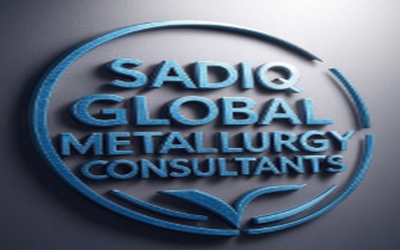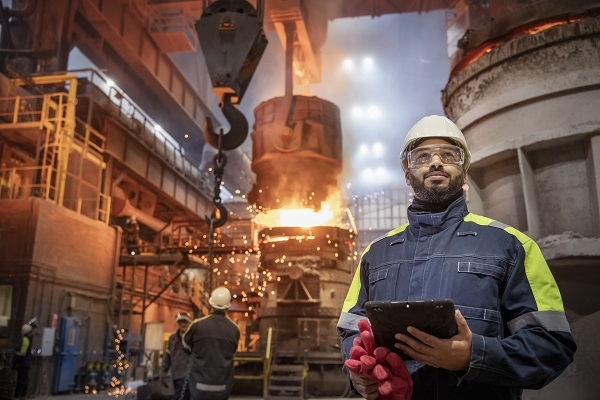The metals and mining industry is one of the oldest and most influential sectors of the global economy. From ancient civilizations extracting gold and copper to today’s technologically advanced mining operations, metals have always been at the core of human progress. In the modern world, the industry not only supports infrastructure development but also plays a vital role in energy transition, sustainability, and advanced manufacturing.
This article explores the importance, challenges, and future opportunities of the metals and mining industry while highlighting how it continues to evolve in the era of digital transformation and green energy.
The Importance of the Metals and Mining Industry
1. Backbone of Infrastructure
Metals such as steel, aluminum, copper, and iron ore are fundamental to construction. Skyscrapers, bridges, highways, and residential buildings all rely heavily on these raw materials. Without mining, modern cities would not exist.
2. Critical for Energy Transition
As the world shifts towards renewable energy, the demand for certain metals is soaring. For instance:
- Copper is crucial for wiring and electrical grids.
- Lithium, cobalt, and nickel are key components of electric vehicle (EV) batteries.
- Rare earth elements power wind turbines, solar panels, and smart electronics.
3. Employment & Economic Growth
The metals and mining industry generates millions of jobs globally and contributes significantly to GDP in resource-rich countries such as Australia, Canada, China, India, and South Africa.
4. Essential for Technology & Innovation
From smartphones and laptops to space exploration, metals are the backbone of modern technology. Silicon, platinum, and gold are vital in electronics and semiconductors.
Key Segments in the Metals and Mining Industry
- Ferrous Metals – Includes iron and steel, which dominate global infrastructure and automotive industries.
- Non-Ferrous Metals – Such as aluminum, copper, zinc, and nickel, valued for their versatility.
- Precious Metals – Gold, silver, and platinum, which hold investment, industrial, and cultural significance.
- Rare Earth Elements – Critical in renewable energy, electronics, and defense industries.
- Industrial Minerals – Limestone, gypsum, and sand, essential for cement and construction.
Challenges Facing the Metals and Mining Industry
1. Environmental Concerns
Mining often disrupts ecosystems, pollutes water, and contributes to carbon emissions. Governments and industry leaders are under pressure to adopt sustainable practices.
2. Resource Depletion
With global demand rising, high-grade ores are becoming scarce, forcing miners to explore deeper and more remote locations.
3. Fluctuating Prices
Commodity prices for metals like copper and gold are highly volatile, influenced by global supply chains, geopolitical tensions, and market demand.
4. Labor and Safety Issues
Despite technological advancements, mining remains hazardous, with risks such as cave-ins, toxic exposure, and equipment-related accidents.
5. Regulatory Compliance
Mining companies face strict regulations related to land use, safety, labor laws, and environmental standards.
Innovations Shaping the Future of Mining
The industry is undergoing a technological revolution. Some key innovations include:
- Automation & Robotics – Autonomous drilling, hauling, and exploration improve safety and efficiency.
- Artificial Intelligence (AI) & Big Data – Used to optimize operations, predict equipment failures, and analyze mineral deposits.
- Green Mining Practices – Implementation of renewable energy sources, water recycling, and eco-friendly extraction methods.
- Blockchain Technology – Ensures transparency and traceability in the metals supply chain.
- Electric and Hybrid Equipment – Reducing carbon footprints of mining operations.
Sustainability in the Metals and Mining Industry
Sustainability is no longer optional—it’s a necessity. Mining companies are investing in cleaner technologies, carbon reduction initiatives, and community development programs. Circular economy models are also emerging, emphasizing metal recycling and reuse to reduce dependency on virgin resources.
For example:
- Aluminum recycling uses 95% less energy compared to primary production.
- Steel recycling significantly reduces waste and energy consumption.
By aligning with global ESG (Environmental, Social, and Governance) standards, the industry is working towards balancing profitability with environmental responsibility.
The Role of the Metals and Mining Industry in Global Development
The metals and mining sector is a cornerstone of:
- Urbanization – Enabling smart cities, modern housing, and infrastructure.
- Industrialization – Supporting factories, machinery, and transportation.
- Global Trade – Driving exports and imports across continents.
- Energy Security – Ensuring access to critical minerals needed for clean energy solutions.
Future Outlook
The future of the metals and mining industry looks promising but also challenging. Demand for green metals (lithium, cobalt, nickel, copper, and rare earths) will continue to rise as the world transitions to renewable energy and electric mobility. However, companies must address environmental challenges, invest in technology, and collaborate with governments to ensure sustainable growth.
Key trends shaping the future:
- Rising demand for battery metals.
- Greater adoption of digital transformation in mining operations.
- Shift toward sustainable and responsible mining practices.
- Strategic partnerships and mergers to secure resource access.
Conclusion
The metals and mining industry remains the foundation of global economic growth, technological advancement, and sustainable development. Despite challenges such as environmental impact and fluctuating prices, the industry is embracing innovation and green practices to build a better future.
From the construction of modern cities to powering renewable energy solutions, the industry will continue to play a pivotal role in shaping the world of tomorrow.
At Sadiq Global Metallurgy Services, we provide expert consulting solutions tailored to the dynamic needs of the metals and mining industry. Our team specializes in metallurgy, material testing, process optimization, and industrial innovation, helping clients achieve operational excellence and sustainable growth. From feasibility studies and technical assessments to strategic guidance on efficiency, compliance, and global market trends, we empower businesses to make informed decisions. With a commitment to precision, integrity, and innovation, Sadiq Global Metallurgy Services stands as a trusted partner for industries seeking reliable consulting in metallurgy and mining solutions.


No responses yet